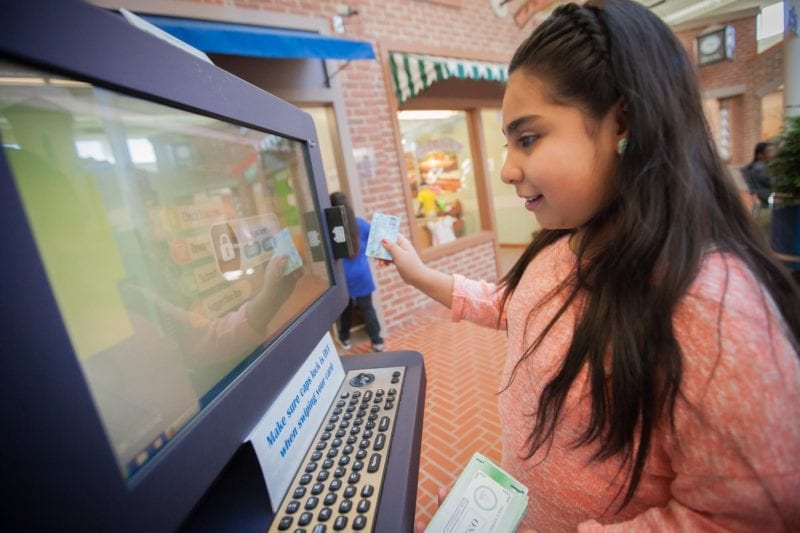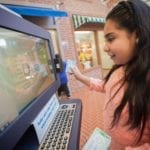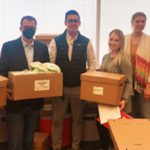Share This Article
With the holiday season quickly approaching, many folks are going shopping to find the perfect gifts for their friends and families. We are all trying to keep track of our spending and make wise financial decisions to protect our credit scores or our personal checking accounts. In Ameritowne and International Towne, students have a similar goal of recording purchases so they do not overspend. However, all of their spending happens in just one day!
Working in Towne every day gives me an opportunity to witness some of the coolest AH-HA moments of learning surrounding spending. One of my favorite learning moments happens when a student has overdrawn his or her checking account. At first, there is a moment when the student thinks there must be a mistake—there is no way the account has been overdrawn. But when we walk through each transaction and remember each purchase, the student realizes what has happened. Sometimes, this causes tears. The student feels like a failure. However, it is truly one of the most beneficial learning moments in Ameritowne. I can’t think of a better place to learn this lesson: once a student realizes the mistake, he or she can return a toy or take a kiosk survey to put money back into the overdrawn account. There is no fee, and the mistake doesn’t negatively impact the student’s credit card.
In International Towne, a question that we are asked all too frequently is, “How much money is on my credit card?” For some students, all plastic is the same whether it’s a debit card, ATM card, gift card, or credit card. The concept or credit can be a bit tricky to understand. But, the opportunity to practice using a credit card with International Towne currency provides invaluable experience for understanding interest rates and exchange rates in the real world.
During the holidays it can be very tempting to give more than you can afford. Some adults even open additional credit cards during the holidays. Our goal through International Towne and AmeriTowne is to help youth learn that it is important to remember to stay within our means, even when we are trying to do nice things for other people.
Teacher Tips when teaching about “plastic”:
Use your own personal experience! Kids can relate better to stories of your own experience with credit or when you were learning about debit cards and the link to your own personal checking account. If you are weary about credit, share that, but remember that the convenience of a credit card while traveling internationally can be very beneficial, and that the opportunity to practice while using fake money is irreplaceable.




